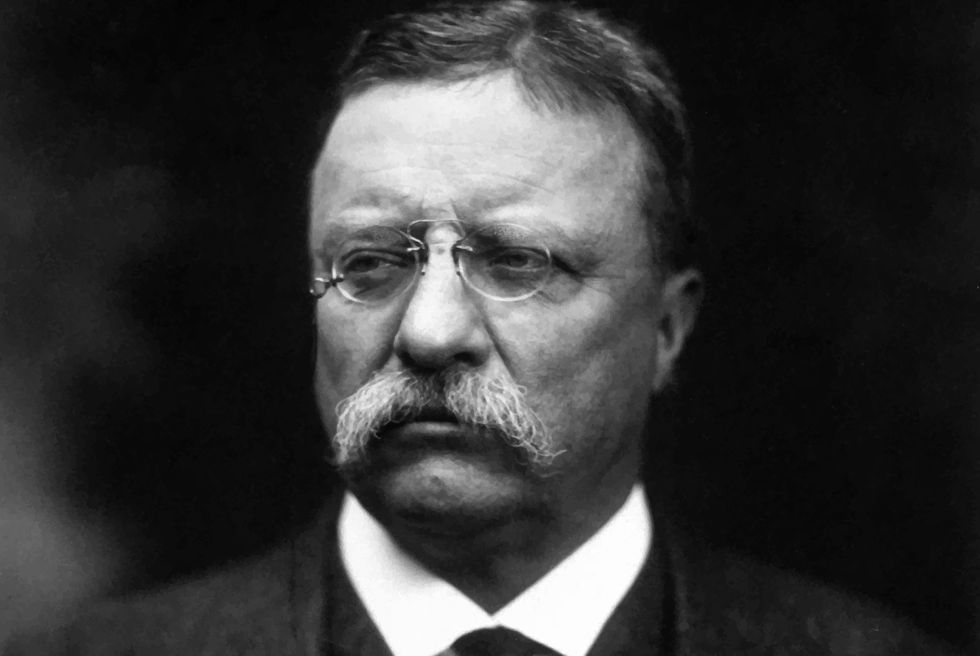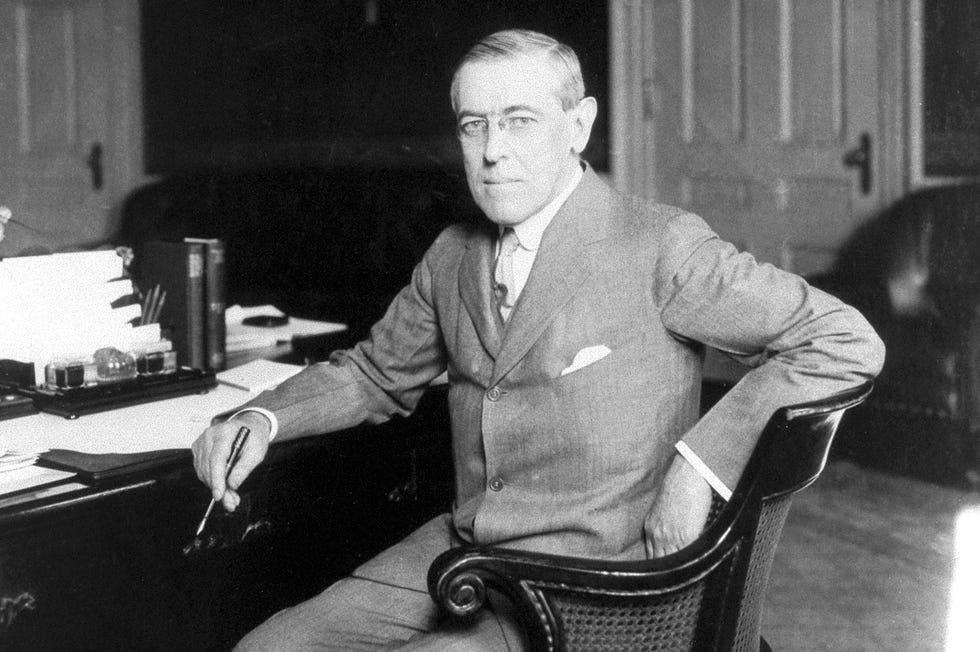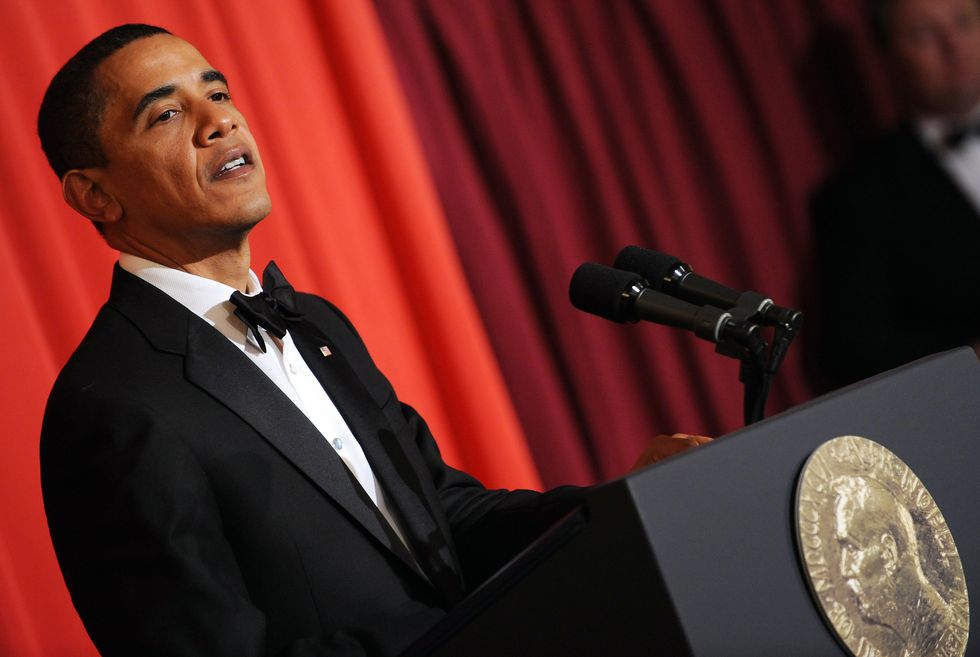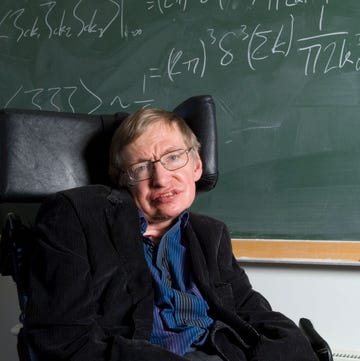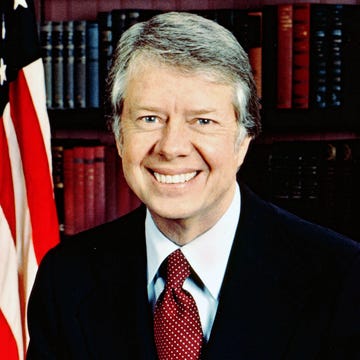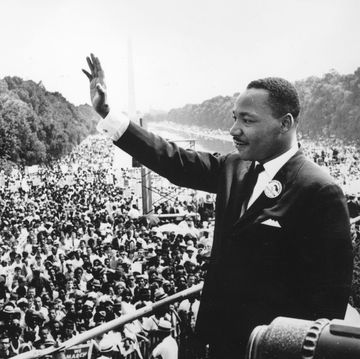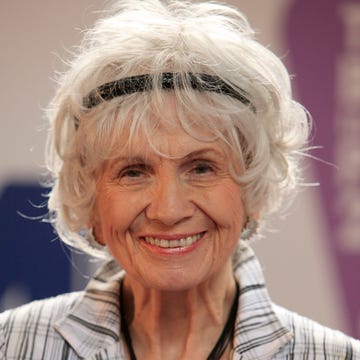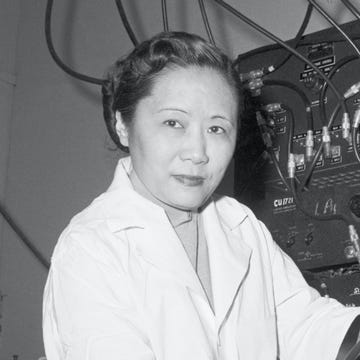Here’s what you’ll learn when you read this article:
- Which U.S. presidents have received the Nobel Peace Prize
- Why these four men were honored with the prestigious award
- The controversies that ensued after several of their selections as winners
Over the years, several U.S. presidents have been nominated for the Nobel Peace Prize, including George W. Bush, Joe Biden, and Donald Trump. The prestigious award recognizes individuals and organizations who have made significant contributions to advance peace, either through promoting democracy, human rights, or nuclear disarmament, or by brokering peace negotiations between nations.
However, it’s fairly uncommon for an American president to actually win the award. Only four have ever received the prize, the most recent of which was Barack Obama, and only three have won the Nobel while they were in office. Here’s what earned these presidential recipients one of the most coveted international awards and why controversy often followed.
Theodore Roosevelt
Theodore Roosevelt, the larger-than-life 26th president of the United States, became the first statesman to win the Nobel Peace Prize in 1906 in recognition of his efforts to broker a peaceful end to the Russo-Japanese War.
Like so much in Roosevelt’s life, the decision was controversial. The award was criticized by leftists who condemned the president as a “military mad” imperialist responsible for the American takeover of the Philippines. Swedish newspapers at the time wrote that Alfred Nobel, the award’s namesake, was “turning in his grave” over the decision, according to the Nobel Foundation.
For his part, Roosevelt used his Nobel acceptance speech to advocate for the formation of an international body for world peace. “It would be a masterstroke if those great powers honestly bent on peace would form a League of Peace, not only to keep the peace among themselves, but to prevent, by force if necessary, its being broken by others,” he said.
Woodrow Wilson
The type of organization Roosevelt envisioned would later become a reality with the foundation of the League of Nations. Woodrow Wilson, the 38th president of the United States, was one of the primary architects of the international organization, and it was for that reason he won the Nobel Peace Prize in 1919.
Wilson also received the recognition for his role in helping end World War I, a conflict he sought to keep the United States out of in the first place. Wilson’s Fourteen Points statement of principles for peace—which addressed territorial issues, arms reduction, and trade conditions, among other factors—helped inform the peace negotiations.
As with Roosevelt, Wilson’s Nobel Prize was considered controversial. The World War I peace negotiations were difficult and contentious, and the League of Nations was significantly weakened when the United States refused to join it. For this reason, some on the Nobel Committee disagreed with the decision to give Wilson the award.
Read More About Woodrow Wilson
Jimmy Carter
Jimmy Carter was widely considered to have one of the greatest post-presidencies in U.S. history. So when he won the Nobel Peace Prize in 2002 for his lifetime of work advancing human rights and world peace efforts, it was a great honor but not a particular surprise.
In fact, Carter had been nominated for the Nobel Prize at least five other times before winning it, according to Douglas Brinkley’s book The Unfinished Presidency. He nearly won it in 1978 for his role in the Camp David Accords, and many expected him to win in 1994 for his diplomatic efforts in Haiti, for which U.S. Senator Daniel Patrick Moynihan said he deserved “five Nobel Prizes” alone.
Twenty-one years after leaving the White House, Carter received the Nobel Peace Prize for “his decades of untiring effort to find peaceful solutions to international conflicts, to advance democracy and human rights, and to promote economic and social development,” according to the Nobel Foundation.
Carter was particularly praised for creating The Carter Center with his wife, Rosalynn, in 1982. The nonprofit organization seeks to prevent and resolve conflicts, enhance freedom and democracy, and improve health. “Obviously, I’m very grateful to the Nobel Committee for choosing me,” he told CNN after the decision was announced. “I think they’ve announced very clearly that the work of The Carter Center has been a wonderful contribution to the world for the last 20 years.”
Nobel officials also publicly admitted that honoring Carter was an implicit criticism of then-President George W. Bush’s initiation of the Iraq War, according to CNN.
Barack Obama
Barack Obama was only nine months into his first term when it was announced in October 2009 that he had won the Nobel Peace Prize. The decision sparked mixed reactions from both sides of the political aisle, with even Obama, himself, appearing dubious as he addressed “the considerable controversy that your generous decision has generated” in his acceptance speech.
“Perhaps the most profound issue surrounding my receipt of this prize is the fact that I am the Commander-in-Chief of the military of a nation in the midst of two wars” in Iraq and Afghanistan, he said. “I come here with an acute sense of the costs of armed conflict—filled with difficult questions about the relationship between war and peace and our effort to replace one with the other.”
The committee awarded Obama for his promotion of nuclear nonproliferation and his support of multilateral diplomacy and “a new climate in international politics.” Nobel committee chairman Thorbjorn Jagland defended the decision: “The question we have to ask is who has done the most in the previous year to enhance peace in the world. And who has done more than Barack Obama?”
Colin McEvoy joined the Biography.com staff in 2023, and before that had spent 16 years as a journalist, writer, and communications professional. He is the author of two true crime books: Love Me or Else and Fatal Jealousy. He is also an avid film buff, reader, and lover of great stories.
Catherine Caruso joined the Biography.com staff in August 2024, having previously worked as a freelance journalist for several years. She is a graduate of Syracuse University, where she studied English literature. When she’s not working on a new story, you can find her reading, hitting the gym, or watching too much TV.

